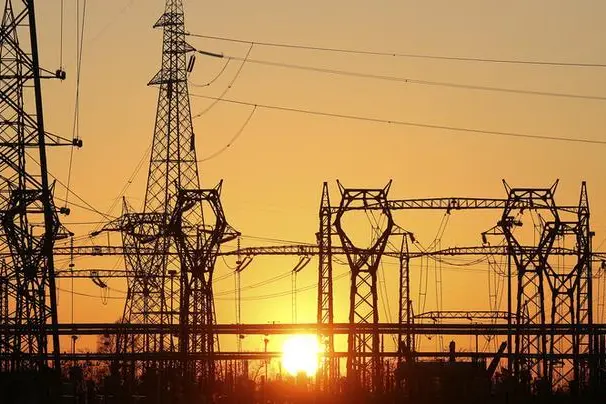PHOTO
OSLO- The reference power price for the Nordic region hit a record high on Monday, with prices in southern Norway scaling new heights for a second consecutive day, driven by colder weather and even more elevated prices in continental Europe and Britain.
Power prices have soared across Europe this year because of an unprecedented surge in gas prices, low wind power output and unplanned outages at French nuclear reactors, adding to wider inflation pressures and hurting consumers.
Several governments are taking short-term measures to help to soften the blow for consumers but have struggled to find a broader common-policy response.
The Nordic system price climbed to a record 309.78 euros ($349.18) per megawatt hour (MWh), data from power exchange Nord Pool showed.
Prices for the bidding zones surrounding Norwegian capital Oslo and the southern coastal hub of Kristiansand settled at 387.45 euros/MWh for Tuesday, up 81.95 euros from Monday's record.
Prices for the region around Bergen on Norway's west coast rose to a new high of 387.21 euros/MWh.
On an hourly basis, prices rose as high as 600.16 euros/MWh for the 60 minutes from 1600 GMT for all three of the southern Norwegian price areas.
The Nordic power market is divided into 12 price zones, with prices in northern Norway much lower - delivering at an average of 62.58 euros/MWh, owing to more abundant wind and hydropower output and limits to grid capacity to move electricity to the south.
Hydropower is the dominant source for electricity production, but a dry year has depleted reservoir levels, which were last at a little more than 62% full, compared with a median 20-year level of 75.8% for this time of year, data from energy regulator NVE showed.
Southern Norway is also the landing point for several subsea power cables connecting Norway with continental Europe and Britain, where prices are higher still because of high gas prices, nuclear outages in France and low wind power generation.
Tuesday's power prices exceeded 400 euros/MWh in most of Europe.
Norwegian consumers are already feeling the impact of rising power prices this year, with most household contracts mirroring daily wholesale price levels. Heating in the Nordic country is largely electric.
Last week the Norwegian government proposed a short-term subsidy for power bills to help to cushion the blow.
($1 = 0.8871 euros)
($1 = 0.8872 euros)
(Reporting by Nora Buli Editing by Mark Potter and David Goodman ) ((Nora.Buli@thomsonreuters.com; (+47) 21 04 05 56; Reuters Messaging: nora.buli.thomsonreuters.com@reuters.net))





















